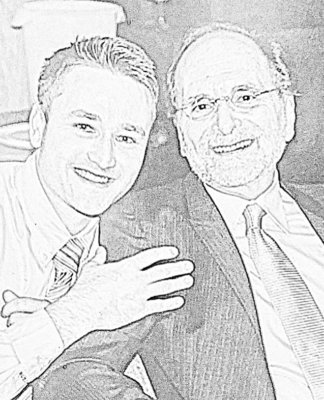How Do I Know When it’s Time To Leave?
Maybe you’re on the fence about leaving a relationship. Worry and fear keep you up at night. You wonder, what will happen if you leave? Will the kids be ok? Will you be okay on your own?
These questions become daily companions. They can also keep you stuck if you aren’t sure of what your next step will be. According to The Gottman Institute, couples wait six years before seeking help. By then, it’s often too late. The desire for connection is covered up by the years of hurt and resentment.
So … how will you know for sure? This blog provides helpful tips to guide you in this process.
Where to start
You’ve spent a lot of time contemplating it. Listing the pros and cons (not a bad way to go) and gathering evidence to support both scenarios are initial first steps. Leaving a relationship is a very emotional decision. Logic takes a backseat.
Struggling with what you should do doesn’t help. Telling yourself things like, “I should have left year ago” or “I need to make this decision right now” can make you feel worse.
Making major life decisions takes time. These decisions shouldn’t be made in the heat of the moment or in reaction to an event. Don’t rush the decision because you’re feeling guilty or pushing yourself before you’re ready. If you’re confused, it’s likely that there is more to consider before taking action.
The more you can accept yourself in this process, the better off you’ll be. Ending a relationship brings up lots of feelings. Honoring these emotions without judgment is important.
Fear of the unknown
This is when you can scare yourself. Thoughts like:
“What if I make the wrong choice? What if it’s too late for me and I’ll never have another relationship? What if no one ever will want me again?”
There is an acronym in 12 step programs called FEAR that stands for False Evidence Appearing Real. Basically, it means what you fear rarely happens. Being afraid leads to making negative assumptions. When these thoughts grip you, it’s hard to take action.
But fear is a normal part of the process. Letting yourself go through the range of feelings is the hard work. Ending relationships trigger a grieving process. There is no way around it. You gotta feel it to heal it. The stages of grief can be applied to most losses. Once you know what to expect, it becomes a little less scary.
Embracing the grief
The stages of grief are denial, anger, depression, bargaining and acceptance. They don’t happen in any particular order. Often you will bounce back and forth through each stage several times until you’ve reached acceptance. This takes several months or even years. Reaching acceptance doesn’t mean you’re okay with the loss, it just means you can accept what happened and move on.
It’s okay if you’re not ready to make this decision. Only you can decide what the next right step needs to be. Everyone has an opinion, but you’re the one who has to live with it. Part of growth is letting yourself make an imperfect choice. Sometimes that’s the best you can do.
If you’re not ready to move ahead, trust that you are not meant to. When you are confused or struggling, making major decisions are naturally more difficult. Here are some guidelines to help.
You’ll know you’re not ready if you:
-
Feel paralyzed by the grief
-
Are filled with confusion and self-doubt
-
Keep asking everyone what they think you should do
-
Can’t stop obsessing over what you could have done differently
-
Don’t have adequate emotional or financial support
-
Struggle with anxiety, depression or other issues that needs treatment
Many people seek counseling for extra support. If you’re not connected to family or friends, support groups provide a safe place to feel connected and avoid isolation. There are groups specifically for divorce, grief and loss, families of alcoholics or if you’re family member is mentally ill.
How to know when you’re ready
Here are some guidelines to consider when the time is right to leave.
-
The fear becomes more manageable
-
You’ve made some initial plans to leave
-
You have enough emotional support
-
It’s become more painful to stay
-
You’ve reached your limit
-
You are more willing to set boundaries and think of yourself first
This is a painful process that takes plenty of patience. It’s a time to take extra good care of yourself. If you find yourself putting off this decision because of fear, be gentle with yourself. When the time is right, you’ll know and can follow these steps when it’s time to act. Everything in life is a process and how you honor yourself will support your healing.
For more help, sign up for my Free 5 day email course on anger.




















